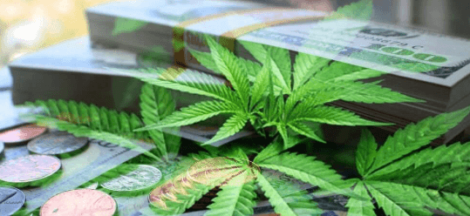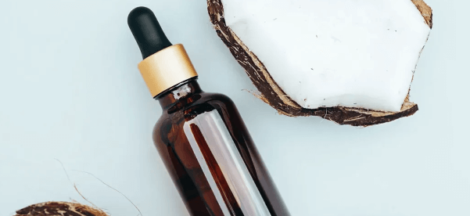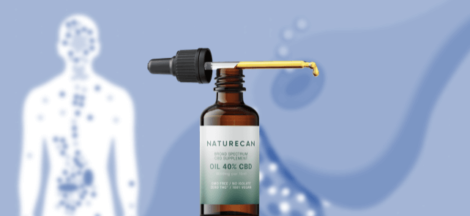Cannabis is a plant that has been used for medicinal and recreational purposes for thousands of years. It contains hundreds of compounds, but two have gained particular attention in recent times: tetrahydrocannabinol (THC) and cannabidiol (CBD). Whether you are new to the cannabis world or an experienced user, understanding the difference between these two compounds is crucial. In this blog post, we will delve into the fundamentals of THC and CBD, what is the difference between thc and cbd, how they work together, their benefits and side effects. So sit back, relax and let’s dive in!
What is THC?
THC, or tetrahydrocannabinol, is one of the main psychoactive compounds found in cannabis. This means that it’s responsible for producing the “high” associated with marijuana use. THC interacts with CB1 receptors in your brain and central nervous system to alter the release of neurotransmitters like dopamine and serotonin.
The effects of THC can vary depending on factors such as dosage, method of consumption, and tolerance level. When smoked or vaporized, the effects are typically felt within minutes and can last for a few hours. Some common short-term side effects include dry mouth, bloodshot eyes, increased heart rate and impaired coordination.
Long-term use of THC has been associated with memory impairment and may increase the risk of developing mental health issues such as psychosis. However, research into these associations is ongoing.
Despite its potential negative side effects when used excessively or irresponsibly , THC has proven to be an effective treatment for conditions such as chronic pain management , nausea relief from chemotherapy treatments and appetite stimulation in patients suffering from HIV/AIDS-related wasting syndrome .
What is CBD?
CBD or cannabidiol is a natural compound found in the cannabis plant. Unlike THC, CBD does not have psychoactive properties that make you high. Instead, it offers numerous health benefits without causing any mind-altering effects.
CBD works by interacting with the endocannabinoid system (ECS) in our body, which regulates various functions such as sleep, appetite, mood and pain sensation. By stimulating the ECS, CBD helps to maintain homeostasis or balance within the body.
One of the most popular uses of CBD is for pain relief. It has been shown to reduce chronic pain by inhibiting inflammation and reducing nerve damage sensitivity. Additionally, research suggests that CBD may help alleviate symptoms associated with anxiety and depression due to its ability to boost serotonin levels in the brain.
Moreover, studies have also demonstrated that CBD may be beneficial for those suffering from epilepsy and other neurological disorders by reducing seizures frequency and improving cognitive function.
CBD has become increasingly popular among consumers seeking natural remedies for various ailments due to its therapeutic potential without any adverse side effects.
The difference between THC and CBD
THC and CBD are the two main cannabinoids found in the cannabis plant. THC is responsible for producing the psychoactive effects commonly associated with marijuana use, while CBD does not have these effects.
The chemical structures of THC and CBD differ, which plays a role in their different effects on the body. THC binds to CB1 receptors in the brain, causing euphoria, relaxation, and altered sensory perception. In contrast, CBD does not bind strongly to either CB1 or CB2 receptors but influences other receptors involved in pain relief and inflammation reduction.
THC tends to be more effective at treating conditions like chronic pain and insomnia due to its ability to induce feelings of relaxation. However, it can also cause anxiety or paranoia in some individuals when consumed at high doses or without proper supervision.
CBD is known for its anti-inflammatory properties that make it useful as a treatment option for conditions such as epilepsy, multiple sclerosis (MS), inflammatory bowel disease (IBD), among others. It may also help reduce symptoms of anxiety by influencing serotonin levels in the brain.
Understanding how THC and CBD affect our bodies can help us determine which product will best suit our needs depending on what we need them for – whether it’s reducing inflammation or inducing relaxation.
How THC and CBD work together
THC and CBD are two of the most commonly known compounds found in cannabis plants. While THC is known for its psychoactive effects, CBD is famous for its therapeutic properties. But did you know that these two compounds can work together to produce a more potent effect?
When consumed together, THC and CBD interact with the body’s endocannabinoid system (ECS) in different ways. THC binds directly to receptors in the brain, producing a euphoric high sensation. On the other hand, CBD works indirectly by boosting the ECS’s ability to produce natural cannabinoids.
The combination of both compounds produces what is called an “entourage effect.” This means that they amplify each other’s benefits while minimizing side effects such as anxiety or paranoia from too much THC intake.
Furthermore, when taken together in certain ratios, they can enhance specific medicinal properties like pain relief or anti-inflammatory effects.
Understanding how THC and CBD work together provides insight into why some strains have higher percentages of one compound over another and how their combined efforts can provide various health benefits.
The benefits of THC and CBD
THC and CBD are both known to offer a wide range of benefits for various health conditions. THC is commonly used to relieve pain, reduce inflammation, and stimulate appetite. It has also been found to be effective in treating insomnia and glaucoma.
CBD, on the other hand, is known for its ability to treat anxiety disorders and depression. It has also been shown to reduce seizures in patients suffering from epilepsy. Additionally, it can help with symptoms related to Parkinson’s disease and Alzheimer’s disease.
One of the most significant benefits of both THC and CBD is their ability to alleviate nausea caused by chemotherapy treatments. They have also been found to be effective in reducing muscle spasms associated with multiple sclerosis.
Another benefit of THC is its ability to provide relief for individuals who suffer from PTSD or post-traumatic stress disorder. Research has shown that using cannabis products containing THC can help reduce symptoms such as nightmares and flashbacks.
CBD may also provide neuroprotective properties that could potentially slow down the progression of certain neurological diseases like Huntington’s disease or ALS.
THC and CBD offer a variety of potential health benefits without many severe side-effects when taken responsibly under medical supervision.
The side effects of THC and CBD
The side effects of THC and CBD are a topic that has been widely debated in recent years. While both compounds have shown promising health benefits, they can also produce unwanted effects.
When it comes to THC, the most common side effect is a feeling of euphoria or being “high”. However, this can also lead to increased anxiety, paranoia, and even hallucinations in some individuals. Other potential side effects include dry mouth and eyes, increased heart rate, impaired coordination and memory function.
On the other hand, CBD tends to have fewer side effects than THC. Some people may experience mild drowsiness or nausea when taking high doses of CBD oil. In rare cases, it may cause diarrhea or changes in appetite.
It’s important to note that the severity of these side effects will depend on several factors such as dosage amount and individual tolerance levels. It’s always best to start with smaller dosages until you understand how your body responds.
While both THC and CBD offer numerous health benefits for various conditions including pain relief and anxiety management , they do come with possible negative consequences . As with any supplement or medication , consulting a healthcare professional prior usage is recommended .
Conclusion
Understanding the difference between THC and CBD is crucial for anyone who wants to use cannabis for medicinal or recreational purposes. While both compounds have their unique benefits and side effects, they work together in synergy to produce a more enhanced effect on the body.
THC is known for its psychoactive properties, which can alter your state of mind and cause euphoria, while CBD has no psychoactive effects but offers numerous therapeutic benefits such as pain relief, reducing anxiety levels, and improving sleep quality.
Before using any form of cannabis containing THC or CBD, it’s important to consult with a healthcare professional who can advise you on dosage amounts and potential interactions with other medications you may be taking.
While there is still much research needed in this area of study, we hope this article has given you an insight into the fundamental differences between THC and CBD. Remember to always consume responsibly and enjoy these incredible compounds safely.





 The Best CBD Vape Juice for Anxiety: A Comprehensive Guide
The Best CBD Vape Juice for Anxiety: A Comprehensive Guide